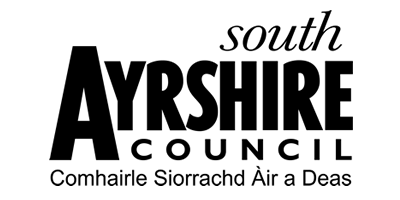When the persecution of Jews in Nazi Germany and the territories under its control escalated in November 1938, the British government agreed to relax immigration restrictions and allow unaccompanied Jewish refugee children under the age of 17 to enter the country on temporary travel visas. Private citizens or welfare groups such as refugee aid committees undertook to find foster homes or otherwise care for them. The organisation of their movement by rail to the Channel ports and then by ferry and rail to London was known as Kindertransport, ‘kinder’ being the German word for children. Around 10,000 children made the journey before the outbreak of the Second World War in September 1939 closed this avenue of escape.
Among those to arrive in July 1938 was 7-year-old Dorrith Oppenheim from Kassel in Germany. On arrival at Liverpool Street Station in London she was met by foster parents who took her to their home in Edinburgh. She never saw her parents again – they were among more than a million victims, mostly Jews, of the Auschwitz concentration camps.

Having chosen to return to Scotland after a post-war visit to relatives in the USA, Dorrith graduated in Secretarial Studies in Edinburgh and married lawyer Andrew Sim in 1952. When he joined a law practice in Prestwick they set up home there. Dorrith was a founder member of Ayr Writers’ Club and wrote many children’s stories. In her picture book In My Pocket she told the story of her childhood experiences on her journey to Britain. Having been involved in a 50th anniversary Kindertransport reunion in London in 1989, Dorrith organised a similar Scottish event the next year. The group which was formed at that time gathered and published the experiences of a number of those who came to Scotland as Kindertransport children or subsequently moved there.

Among them was Herbert Koniec. Aged 10, he travelled from Bratislava in Czechoslovakia in June 1939 and eventually arrived in Glasgow – his sister Dorothea had left earlier and was already being fostered there. Herbert and the lady who took him in could communicate in German, and he still spoke no English when he started attending a local school in September 1939. A few days later war broke out, and the plans which were in place for the evacuation of Glasgow children to Ayrshire swung into action. School classes boarded trains accompanied by their teachers, who liaised with local evacuation officers at their destination to place them in homes. Herbert’s class arrived at Cassillis Station near Minishant and were taken to the village hall in Kirkmichael. Herbert found himself on his own after the others had been allocated to homes, but the local infant teacher Miss Hamilton spoke German and persuaded John and Agnes Muir, who already had their allocation of evacuee children, to take him in. Miss Hamilton lodged with the Muirs during the week and could interpret. John Muir was a roadman for the County Council. He and his wife were in their 40s with no children of their own and lived in a small house in Kirkmichael’s Patna Road, with no mains water or electricity and a dry lavatory at the bottom of the garden. Herbert was very happy there, and by the next spring he was able to write letters in English, sent to his parents via the Red Cross, telling them how well he was doing at school. No replies were received after June 1942. In that month Herbert’s parents were deported from Bratislava, and they died in Auschwitz.

When evacuee payments ceased after the end of the war in 1945, the Muirs unofficially adopted Herbert. He attended Carrick Academy in Maybole, and when he graduated in medicine from the University of Glasgow in 1952 his foster parents proudly attended the ceremony. As Herbert Kay he went on to practice as a GP in Middlesbrough, where he and his wife Jean became prominent members of the community, but he kept in touch with his friends and adoptive relatives in Ayrshire and he never lost his strong Ayrshire accent.

What great life stories that should never be forgotten. Thanks for producing this article for all to reference and note.